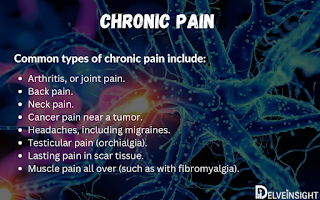Dilated Cardiomyopathy Treatment Breakthroughs: A Look into the Future
Addressing the Gaps in Dilated Cardiomyopathy Treatment
Dilated cardiomyopathy (Dilated Cardiomyopathy) is a condition characterized by the dilation and impaired contraction of the left ventricle, leading to heart failure. Despite advancements in medical research, significant gaps remain in Dilated Cardiomyopathy treatment, with many patients experiencing limited improvement from current therapies. Addressing these gaps requires a multifaceted approach, including enhancing diagnostic accuracy, improving patient-specific treatment plans, and developing new therapies.
A Step Toward Personalized Medicine in Dilated Cardiomyopathy Treatment
Personalized medicine is transforming the treatment landscape for many diseases, including Dilated Cardiomyopathy. Understanding the genetic and molecular underpinnings of Dilated Cardiomyopathy is crucial for developing tailored treatments. Personalized medicine aims to offer treatments based on an individual’s genetic makeup, lifestyle, and environment, which can improve treatment efficacy and reduce adverse effects. For instance, genetic testing can identify specific mutations responsible for Dilated Cardiomyopathy, allowing for targeted therapies that address the root cause of the condition rather than just managing symptoms.
Dilated Cardiomyopathy Companies
Several pharmaceutical companies are at the forefront of developing innovative Dilated Cardiomyopathy treatments. Notable players include Amgen, Pfizer, and Novartis, which are investing heavily in research and development to bring new therapies to market.
Upcoming Therapies to Improve Dilated Cardiomyopathy Treatment
CORLANOR
CORLANOR
CORLANOR (ivabradine) is an innovative therapy that has shown promise in managing Dilated Cardiomyopathy. By selectively inhibiting the If current in the sinoatrial node, CORLANOR reduces heart rate without affecting myocardial contractility, offering a novel approach to managing heart failure symptoms in Dilated Cardiomyopathy patients.
CRISPR
CRISPR gene-editing technology holds significant potential for revolutionizing Dilated Cardiomyopathy treatment. This groundbreaking technology allows for precise modifications of the genome, enabling researchers to correct genetic mutations responsible for Dilated Cardiomyopathy. Early-stage research and clinical trials are exploring the feasibility and safety of CRISPR-based therapies for Dilated Cardiomyopathy, which could offer a cure for genetically driven cases of the disease.
CRISPR Therapies
Beyond traditional gene editing, CRISPR-based therapies are being developed to modulate gene expression and repair damaged cardiac tissue. These therapies aim to restore normal cardiac function by targeting specific genetic pathways involved in Dilated Cardiomyopathy. Although still in experimental stages, CRISPR therapies represent a promising frontier in the treatment of Dilated Cardiomyopathy.
Dilated Cardiomyopathy Market Scenario
The Dilated Cardiomyopathy market is evolving rapidly, driven by increasing prevalence and advancements in therapeutic approaches. The growing understanding of the disease’s genetic basis is spurring the development of targeted treatments, contributing to market growth.
Dilated Cardiomyopathy Market Size
The market size for Dilated Cardiomyopathy treatments is projected to expand significantly over the next decade. Factors contributing to this growth include increased research funding, rising awareness of the disease, and the introduction of novel therapies. By 2032, the Dilated Cardiomyopathy market is expected to reach substantial figures, reflecting the urgent need for effective treatments.
Dilated Cardiomyopathy Pipeline
The pipeline for Dilated Cardiomyopathy therapies is robust, with several promising candidates in various stages of development. These include both pharmacological treatments and advanced gene therapies, highlighting the diverse approaches being explored to tackle Dilated Cardiomyopathy.
Dilated Cardiomyopathy Prevalence
Dilated Cardiomyopathy affects millions worldwide, with a prevalence rate of approximately 1 in 2,500 individuals. This high prevalence underscores the need for effective and accessible treatments to manage the condition and improve patient outcomes.
Dilated Cardiomyopathy Therapies
Current therapies for Dilated Cardiomyopathy primarily focus on managing symptoms and preventing disease progression. These include beta-blockers, ACE inhibitors, and lifestyle modifications. However, the advent of personalized medicine and gene therapies offers hope for more effective and curative treatments in the future.
In conclusion, the road ahead for Dilated Cardiomyopathy treatment is promising, with advancements in personalized medicine and gene therapies paving the way for more effective and targeted treatments. As research continues to evolve, the future holds significant potential for improving the lives of those affected by Dilated Cardiomyopathy.

.png)


Comments
Post a Comment